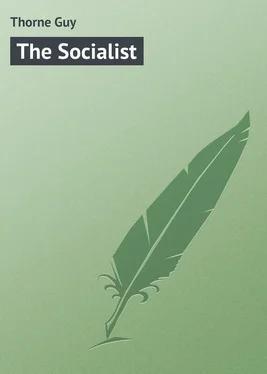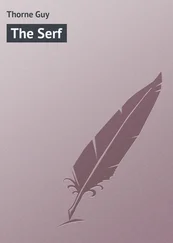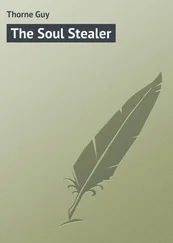Guy Thorne - The Socialist
Здесь есть возможность читать онлайн «Guy Thorne - The Socialist» — ознакомительный отрывок электронной книги совершенно бесплатно, а после прочтения отрывка купить полную версию. В некоторых случаях можно слушать аудио, скачать через торрент в формате fb2 и присутствует краткое содержание. Жанр: foreign_prose, на английском языке. Описание произведения, (предисловие) а так же отзывы посетителей доступны на портале библиотеки ЛибКат.
- Название:The Socialist
- Автор:
- Жанр:
- Год:неизвестен
- ISBN:нет данных
- Рейтинг книги:4 / 5. Голосов: 1
-
Избранное:Добавить в избранное
- Отзывы:
-
Ваша оценка:
- 80
- 1
- 2
- 3
- 4
- 5
The Socialist: краткое содержание, описание и аннотация
Предлагаем к чтению аннотацию, описание, краткое содержание или предисловие (зависит от того, что написал сам автор книги «The Socialist»). Если вы не нашли необходимую информацию о книге — напишите в комментариях, мы постараемся отыскать её.
The Socialist — читать онлайн ознакомительный отрывок
Ниже представлен текст книги, разбитый по страницам. Система сохранения места последней прочитанной страницы, позволяет с удобством читать онлайн бесплатно книгу «The Socialist», без необходимости каждый раз заново искать на чём Вы остановились. Поставьте закладку, и сможете в любой момент перейти на страницу, на которой закончили чтение.
Интервал:
Закладка:
The duke had not thought about the unemployed before, but now he made a mental vow to send a big cheque to the Lord Mayor's fund.
"It must be very hard for them," he said vaguely. "I remember meeting one of their processions once when I was walking down Piccadilly."
"The street of your palace!" she answered more brightly. "Devonshire House, Paddington House, and Apsley House, and all the clubs in between! It must be interesting to have a palace in London. I suppose Paddington House is very splendid inside, isn't it? I have never seen more of it than the upper windows and the huge wall in front."
"Well, it is rather gorgeous," he said; "though I never go there, or, at least, hardly ever. But I have a book of photographs here. I will show them to you, Lady Constance, if I may. So far we've succeeded in keeping them out of the illustrated magazines."
"Oh, please do!" she said. "Father, the duke is going to show me some pictures of the rooms of his mysterious great place in Piccadilly."
As she spoke there was a knock upon the door, and the scout came in with a telegram upon a tray.
"I thought I had better bring it at once, sir," he said; "it's marked 'urgent' upon the envelope."
With an apology, the duke opened the flimsy orange-coloured wrapping.
Then he started, his face grew rather paler, and he gave a sudden exclamation. "Good heavens!" he said, "listen to this:
"'Large portion front west wing Paddington House destroyed by explosion an hour ago. Bomb filled with picric acid discovered intact near gateway. The smaller Gainsborough and the Florence vase destroyed. Please come up town immediately.
"'SIMPSON.'"There was a dead silence in the room.
CHAPTER III
A MOST SURPRISING DAY
Lord Camborne, Lord Hayle, and Lady Constance stared at the duke in amazement as he read the extraordinary telegram from Colonel Simpson. Lady Constance was the first to speak. "And you were just getting the book of photographs!" she said in a bewildered voice, "the photographs of Paddington House, and now – "
"Read the wire again, John," said Lord Hayle.
The duke did so; it was quite clear:
"'Large portion front west wing Paddington House destroyed by explosion an hour ago. Bomb filled with picric acid discovered intact near gateway. The smaller Gainsborough and the Florence vase destroyed. Please come up town immediately.
"'SIMPSON.'""The smaller Gainsborough – that's the famous portrait of Lady Honoria FitzTracy," said Lord Hayle suddenly. "Why, it's the finest example of Gainsborough in existence!"
He grew pale with sympathy as he looked at his friend.
"It isn't in existence any more, apparently," said the duke. "I wish the Florence vase had been saved. My father gave ten thousand pounds for it – not that the money matters – but, you see, it was the only one in the world, except the smaller example in the Vatican."
The bishop broke in with a slight trace of impatience in his voice. "My dear young men," he said, "surely the great question is: Who has perpetrated this abominable outrage? What does it all mean? What steps are being – "
He stopped short. Gardener had entered with another telegram.
"Man arrested on suspicion, known to belong to advanced socialist or anarchist group. Can you catch the fast train up? There is one at six. I will meet you with car.
"SIMPSON.""Well, here is a sort of answer," said the duke, handing the telegram to the bishop. "It appears that the thing is another of those kindly and amiable protests which the lower classes make against their betters from time to time."
"Just what I was saying," young Lord Hayle broke in eagerly, "just what I was saying a few minutes ago. It's all the result of educating the lower classes sufficiently to make them discontented and to put these scoundrelly socialists and blackguards into Parliament. They'll be trying Buckingham Palace or Marlborough House next! Probably this is the work of those unemployed gentry whom I heard Constance defending just now."
"It's a bad business," said Lord Camborne gravely; "a very black, bad business indeed. Paddington, you have my sincerest sympathy. I am afraid that in the shock of the news we may have been a little remiss in expressing our grief, but you know, my dear boy, how we all feel for you."
He went up to the duke as he spoke, a grand and stately old man, and shook him warmly by the hand.
"Yes, John," said Lord Hayle, "we really are awfully sorry, old chap."
Lady Constance said nothing, but she looked at her host, and it was enough. He forgot the news, he forgot everything save only the friendship and kindliness in her eyes.
"I suppose you will go up to town by the six o'clock train?" Lord Hayle said.
"I suppose I must, Gerald," the duke replied. "I must go and get leave from the dean later on. I expect I shall have to stay the night. It's not an inviting day for London, is it?"
"Do you know, duke, that I think you are taking it remarkably well," Lady Constance said with a sudden dazzling smile. "I should have been terribly frightened, and then cried my eyes out about the vase and the picture. And as for Hayle – well, I think I can imagine the way Hayle would have behaved."
"Well, of course, I'm horribly angry," the duke said, "and such a thing means a great deal more to society in general than its mere personal aspect to me. But I can't somehow feel it very nearly; it seems remote. I should realize it far more if any one were to steal or break anything in these rooms here – things I constantly touch and see, things I live with. I have so many houses and pictures and things that I never see; they don't seem part of one."
"I can quite understand that," said the bishop; "but that will all be changed some day, please God, before very long. You are only on the threshold of life as yet, you know."
He smiled paternally at the young man, and there was a good deal of meaning in his smile. The duke, not ordinarily sensitive about such things, blushed a little now. He was quite aware to what Lord Camborne referred.
The bishop, astute courtier and diplomatist that he was, marked the blush, pretended not to notice it, and was secretly well pleased. He himself was earl as well as bishop, he was wealthy, he was certain of the Primacy. His daughter, whom he loved and admired more than any other living thing, was a match for any one with her rank and wealth and loveliness. He longed to see her happily married also. At the same time, good man as he was, he was by his very nature and training a worldly man.
If, therefore, the two young people fell in love with each other – well, it would be a very charming arrangement, to say the least of it, Lord Camborne thought. For, far and away above all other fortunate young noblemen, the duke was the greatest parti of the day; he stood alone.
"I've got three hours or more before the train goes," said the duke, "and I can dine on board; there's a car, I know. Now, do let's forget this troublesome business. I'm so sorry, Lady Constance, that it should have happened while you were here. Let's shut out this horrid afternoon."
He spoke with light-hearted emphasis, with gaiety even. Despite what had happened he felt thoroughly happy, his blood ran swiftly in his veins, his pulses throbbed to exhilarating measures. Oh, how beautiful she was! How gracious and lovely!
He went to the windows and pulled the heavy crimson curtains over them, shutting out the wan, grey light of the November afternoon.
He made Gardener bring candles – innumerable candles – to supplement the glow of the electric lights. More logs were cast upon the fire – logs of sawn cedar wood which gave flames of rose-pink and amethyst. The noble room was illuminated as if for a feast.
Lord Hayle entered into the spirit of the thing, con amore . His spirits rose with those of his friend, and his sister also caught the note, while Lord Camborne, smoking a cigar by the fire, watched the three young people with a benevolent smile.
Читать дальшеИнтервал:
Закладка:
Похожие книги на «The Socialist»
Представляем Вашему вниманию похожие книги на «The Socialist» списком для выбора. Мы отобрали схожую по названию и смыслу литературу в надежде предоставить читателям больше вариантов отыскать новые, интересные, ещё непрочитанные произведения.
Обсуждение, отзывы о книге «The Socialist» и просто собственные мнения читателей. Оставьте ваши комментарии, напишите, что Вы думаете о произведении, его смысле или главных героях. Укажите что конкретно понравилось, а что нет, и почему Вы так считаете.












